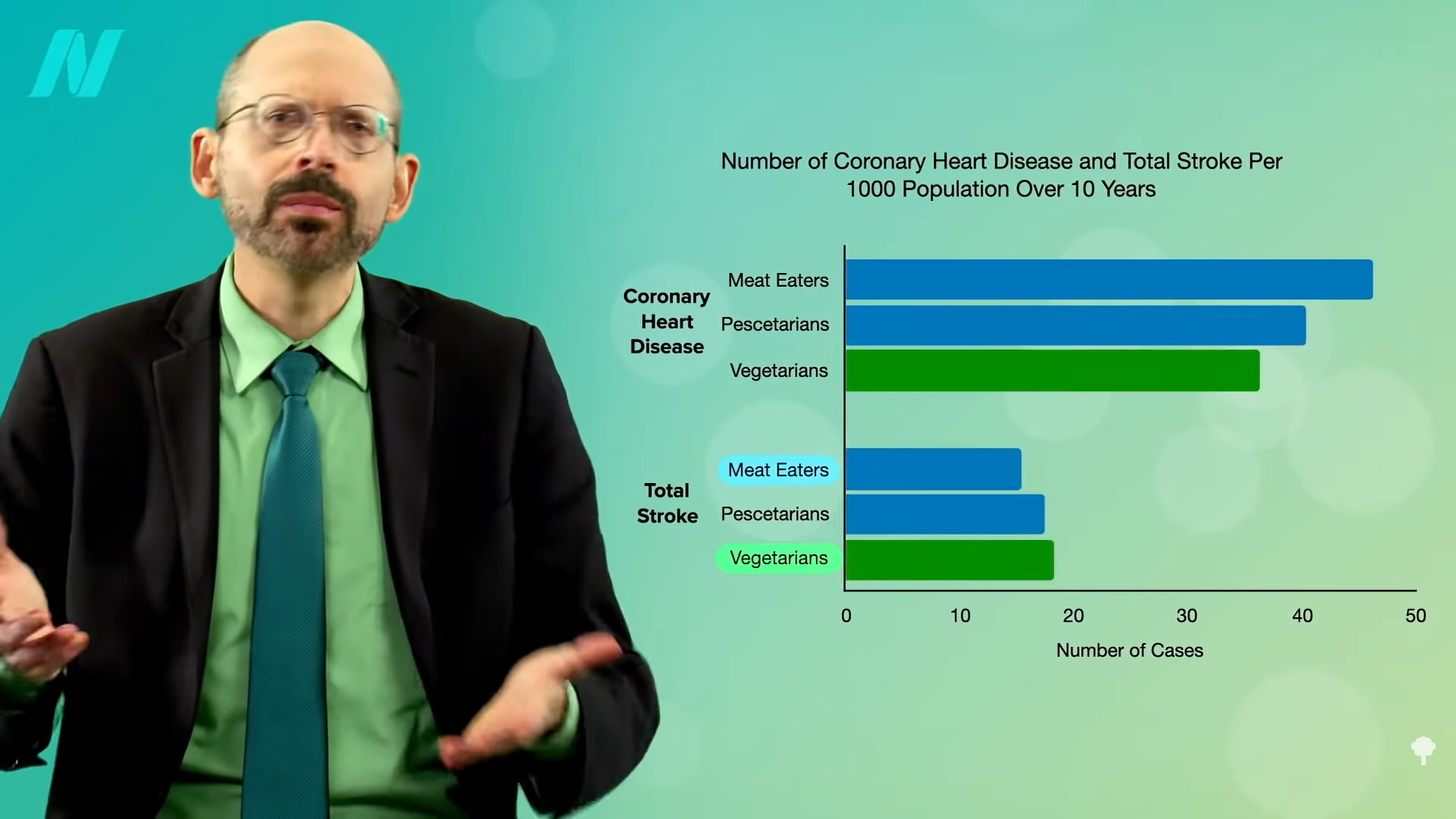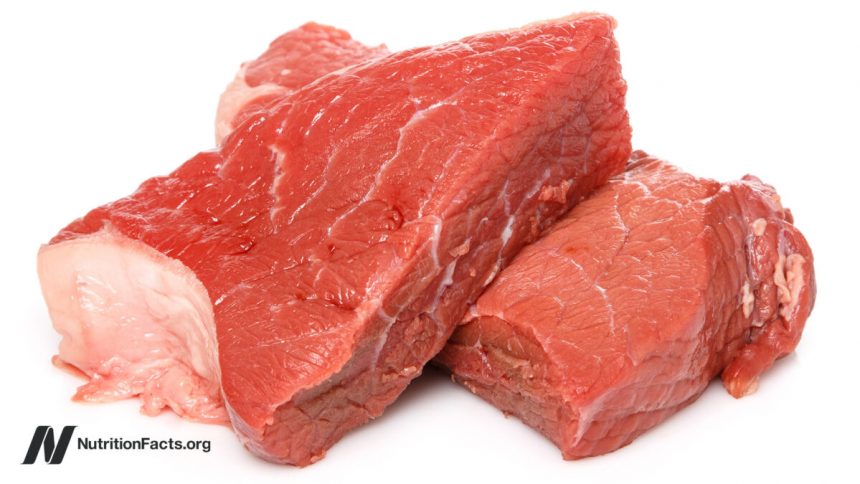Could animal protein-induced increases in the cancer-promoting growth hormone IGF-1 be linked to brain artery integrity?
A 2014 study found that higher dietary protein intake was associated with lower stroke risk, with animal protein showing protective effects. Could this explain why vegetarians have been found to have a higher stroke rate compared to meat eaters?

Consuming animal protein can elevate levels of IGF-1, a hormone linked to cancer promotion. This hormone is known to accelerate the progression of precancerous changes. Higher blood concentrations of IGF-1 are associated with increased risks of various cancers, such as breast, colorectal, lung, and prostate. Interestingly, IGF-1 receptors are also present on blood vessels, suggesting a potential role in promoting brain artery integrity.
Several studies have explored the relationship between IGF-1 levels and stroke risk. While stroke patients tend to have lower blood levels of IGF-1, the causal relationship is still unclear. Recent findings indicate that higher IGF-1 levels are associated with a reduced risk of stroke, supported by evidence from mouse models and cell studies showing the hormone’s positive effects on artery elasticity. However, individuals with conditions like acromegaly, characterized by excessive growth hormone levels, do not exhibit lower stroke rates.

While the relationship between dietary protein intake and stroke risk remains debated, a plant-based diet may offer protective benefits. Individuals with high blood pressure and low IGF-1 levels are at increased risk of developing atherosclerosis, which can affect the arteries leading to the brain. Maintaining adequate blood pressure control and consuming potassium-rich foods like beans, sweet potatoes, and leafy greens can help reduce stroke risk.
The higher stroke risk observed in vegetarians cannot solely be attributed to IGF-1 levels, as dairy and egg whites also contain animal proteins. Only vegans consistently exhibit lower levels of IGF-1. The mystery behind higher stroke rates among vegetarians may be related to factors like homocysteine, which warrants further exploration.
For more information on IGF-1, watch my videos Flashback Friday: Animal Protein Compared to Cigarette Smoking and How Not to Die from Cancer.
Looking to lower your blood pressure naturally? Check out the hypertension chapter in How Not to Die for practical tips.
This article is part of a series on vegetarians’ stroke risk, exploring the complex relationship between diet and cardiovascular health.
Stay tuned for insights into the underlying mechanisms of stroke risk among vegetarians.





